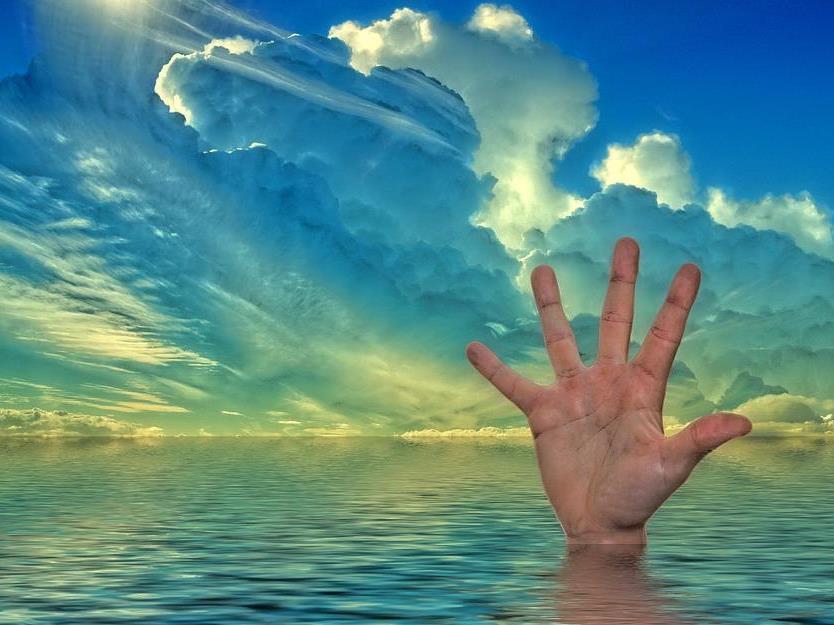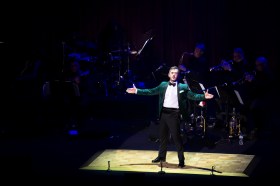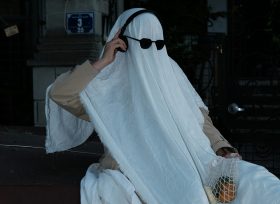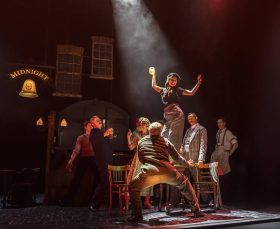Image via Pixabay
Some of the best we do happens in rooms where art is made and shared. I spend as much of my life as I can in those rooms and, because the best of our humanity is on display there, I look to artists for answers. They lead us through the unknown and into the future, so there’s no better help in a crisis of the soul.
Read: Jedi art warriors could save our society
What do they have to teach us?
I’ve made a list of eight favorite lessons I’ve learned from the artists in my life. In no particular order:
1. Begin with what if?
It’s the question at the beginning of imagination, the root question: what if? It’s a question that, in its asking, runs counter to stubborn reality: what is. What if the fate of civil society literally depends on what we in this room and the people we serve do? If we knew this to be true, what would we do? We expect our legislators to immediately address a proven global climate crisis. Shouldn’t “the unacknowledged legislators of the world,” as Shelley called poets, act forcefully to address an evident crisis of our humanity? Saving humanity is not a job for fundraising consultants and brand managers. It’s a job for the people who show us to ourselves. The better our questions, the better our insights. “What if?” may be the best question around.
2. Acknowledge your sources and ancestors.
Artists understand source. They know that we never can and never want to live in Year Zero, as Cambodia’s Khmer Rouge dubbed it. Why would anyone want to eradicate vestiges of the culture that came before? We stand on land stolen from other people. Artists remind us. We build on the work of those who came before. Artists add new questions to theirs, new insights to theirs. We rely on the wisdom of our forebears. Artists know this.
3. People are deeply individual, and people are profoundly connected.
Is anything better than art when it comes to articulating singularity, the unique life-human difference? Is anything better than art when it comes to connecting us across that difference?
4. To make something work you must stay in the room.
There is no walking out of rehearsal or performance. When artists show up they come armed with the knowledge that time together is the most precious resource. There’s never enough time and, so, to make something true and beautiful, they keep at it. Together. There are no lame-duck sessions in art making. There are no endless filibusters. No waiting till the next President. Artists are reliant on each other for the fulfillment of our individual ambitions. They need each other to make work, and they need each other to make world. To do that you have to stay in the room.
5. Acting is listening.
One of the Group Theatre greats introduced the idea in America; I think it was Robert Lewis. In performance, listening is everything. Actors don’t generate emotion; they take others in and are moved by them. All action—onstage and off—is, in this way, reaction.
It’s a deep lesson and it, too, has an etymological foundation: to respond and to be responsible flow from the same source. Both essentially mean “answerable.” In listening begins accountability. Service works like this, too. Service is listening. And our listening awakens the impulse to act, to do, to take responsibility for another.
6. Need precedes labour.
Artists work because they are moved to by inner need. Consumer culture works to create need where there is none. I choose the artist’s way.
7. Wealth ≠ wisdom.
Actually I didn’t learn this from artists: I learned it working with boards. We all know them, those board members who, by virtue of having made, married, or inherited pots of money, believe they possess uncommon wisdom. And clearly they’re right to think it. We deify the rich.
I’ve learned something better, though, in my years in the art church that is New Dramatists: wisdom is hard won, and you gain it by wrestling with internal and external demons. And you win for a minute at a time, and the prize is some small illumination, some shining fleeting moment when art trumps wealth and art trumps ownership and art trumps bluff and self-interest and other-hate.
And another insight, too, from years of having playwrights on the New Dramatists board: the lay board members were hungry to hear from the artists, hungry. When the writers spoke, the room changed and with it, occasionally, the future of the organization.
8. Last and least favorite lesson: We are always starting over.
The artist always starts from scratch. Not just raising the chisel to the stone, but making or mining the damn stone, whacking at it, shaping it, cracking it down the middle. Then back to the mines. We are always back at the beginning, and that requires stamina and faith.
This has been the hardest thing for me, working in service organizations. Every year brings the same cycle of deadlines, the reiteration of this selection process and that program. We explain what we do, repeat the stories of our history, and orient new members, even as we listen for nascent concerns and fresh voices. Another year passes, or another generation, and, because the players have changed—we return to square one. It’s Sisyphus all over again.
This article is an edited extract from the keynote address delivered at the Association of Performing Arts Service Organizations in the US and published on HowlRound.





